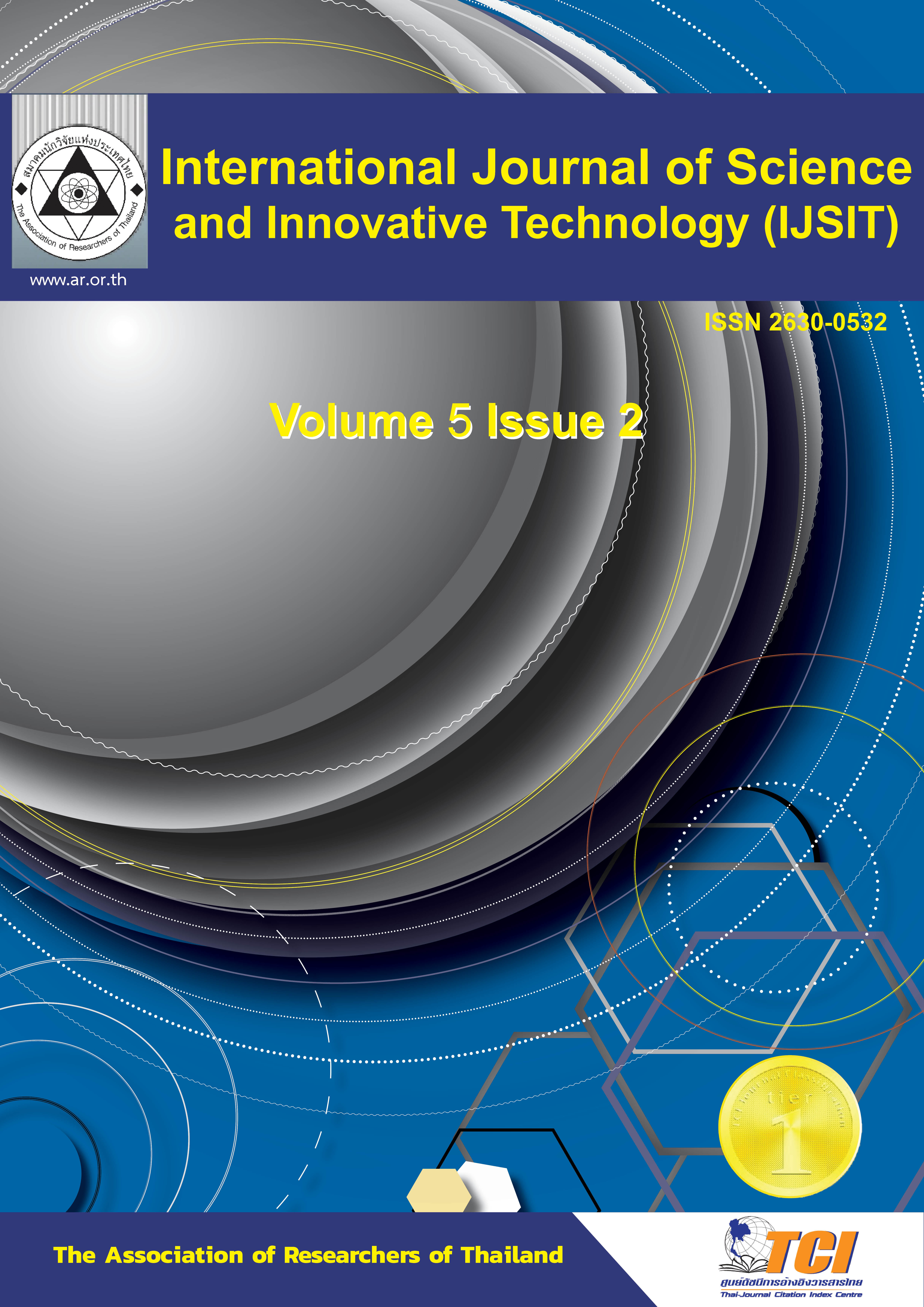Guidelines for Enhancing the Effectiveness of Innovative Online Classes of the Police Cadets
Main Article Content
Abstract
Currently, learning management is a challenge for all educational institutions. This research project examined the guidelines for enhancing the effectiveness of online classes for police cadets using a mixed methods approach. A random sample of 250 police cadets was used for the quantitative method. For the qualitative method, a purposive sample of 34 managements and staff was used, including executive managements, faculty members, police cadets, and police officers from the Office of Academic Resources and Information Technology. The results showed that the use and effectiveness of online classes were highest both overall and on individual items. Police cadets' satisfaction with the use of online classes, which impacted the effectiveness of online classes, was 73.8 percent and significant at the 0.01 level. In addition, the following issues emerged: 1) instructor aspect: unfamiliarity with the program, lack of focus, and lack of interaction with students. The effectiveness enhancing guidelines were teacher/trainer training, establishing a learning community, creating educational innovation, and changing the role of teachers. 2) The student aspect revealed a lack of motivation, discipline, and self-control, as well as uncomfortable communication channels. Therefore, the academy should focus on motivating students, adjusting the perspective of leadership and control, and creating an easily accessible information channel for cadets. 3) The aspect of teaching activities showed the problems of lack of system and program knowledge and online teaching while cadets are in the classroom. Therefore, the academy should establish an online knowledge base, an exam database, and a mentoring system. 4) The aspect of supporting factors for teaching revealed that the learning environment was inadequate and the equipment was not ready. In addition, the academy should improve the basic structure of teaching; especially install the internet network and digital TV.
Article Details

This work is licensed under a Creative Commons Attribution-NonCommercial-NoDerivatives 4.0 International License.
References
Kanokwan Maneechai and Sangdao Prasittisuk. (2017). Factors Affecting Satisfaction in Online Learning.
(E-learning) of Government Savings Bank employees Surat Thani District. http://utccmbaonline.com/ijbr/doc/
(Edit)Id603-10-05-2017_15:59:08.pdf
Kamolchanok Kaewthong. (2016). Online learning or E-Learning. https://sites.google.com/site/
Kamonchanok561031350/khwam-hmay-khxng-e-learning
Manual for internal education quality assurance Academic year 2019. (2019). Nakhon Pathom: Bureau of Quality Assurance Education Police Cadet Academy.
Chanin Tangpanthong. (2017). Factors affecting online learning achievement for enhancing teaching and learning. [Thesis, Master of Science Program Business Information Technology, Chulalongkorn University].
Nuttakrit Phuklang. (2018). Developing the efficiency of teaching and learning management at the bachelor's degree level. Faculty of Engineering Maha Sarakham Rajabhat University. Research report on research grants from research and development institutions Mahasarakham Rajabhat University, fiscal year 2018.
Denpon Kurikan. (2015). E-Leaning. https://sites.google.com/site/denponkurikan/ e-Learning.
Panwas Prasartsilp. (2015). Online lesson development. "English for Work Readiness" with Ed module for undergraduate students Faculty of Arts Rajamangala University of Technology Suvarnabhumi Suphanburi Center. Rajamangala University of Technology Suvarnabhumi Research Fund Fiscal Year 2015.
Piticha Kaenchan. (2014). A study of usage conditions, needs and satisfaction with online learning videos.
through the website [Master of Industrial Education Program Thesis Department of Educational Technology, King Mongkut's University of Technology North Bangkok].
Phachara Limrattanamongkol and Jiratcha Wichianpanya. (2013, July-December). Factors for success in learning online of the students of the Thai Cyber University Project. Journal of Rangsit Informatics, 19(2), 54-63.
Patchara Kongmoh. (2017). Guidelines for developing online classrooms for teachers. Rajamangala University of Technology Thanyaburi. Rajamangala University of Technology Thanyaburi Research Fund Research Project Fiscal Year 2016.
Suwat Banlue. (2017), July-December). Online teaching management model suitable for Ubon Ratchathani Rajabhat University. Journal of Roi Et Rajabhat University, 11(2), 250-260.
Apinya Panyasit. (2012). Analysis of problems in using online teaching and learning system. Maejo University [Thesis, Master of Arts Program Department of Media Arts and Media Design,
Chiang Mai University].
Atetaya Kaewsriha, Kraphan Srikan and Kowit Watcharintrangkun. (2015, July-December). Factors Affecting Teaching Efficiency of Vocational Certificate Course Teachers in Secondary Schools Under the Office of Secondary Education Service Area, Region 32. Research and Development Journal Buriram Rajabhat University, 10 (2), 250-260.
Ubolrat Wichian, Pancharee Ukapatsakul and Anchana Srichanchai. (2019, January-June). E-learning Lesson Model for Students Through the Network E-Learning Lesson Model for Students Through the Networks. Business Review Journal, 11(1), 231-242.
Dina S., Daphne G. & Hongli L. (2021). Individual differences in self-regulated learning of college students enrolled in online college courses. American Journal of Distance Education. 35(2), 133-151.
Khan, B.H. (2012). The E-learning framework. https://bookstoread.com/framework/
Tham C.M., & Werner J.M. (2005). Designing and evaluation e-learning in higher education: A review and recommendations. Journal of Leadership and Organizational Studies. 11(2), 15-25


